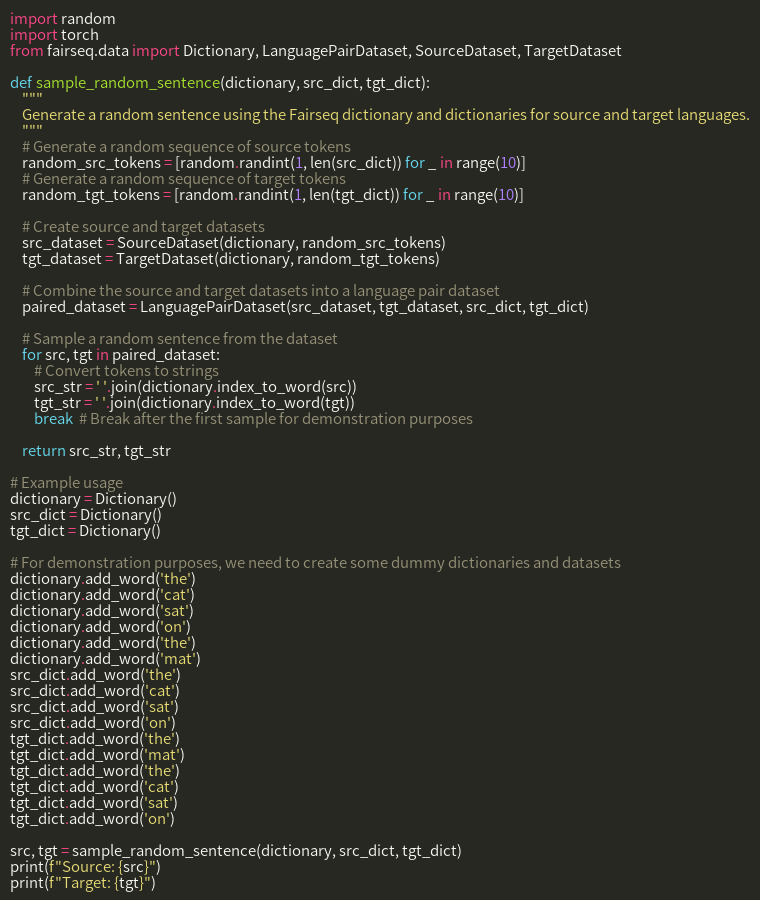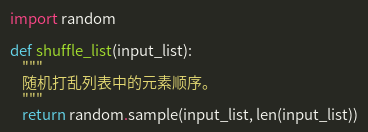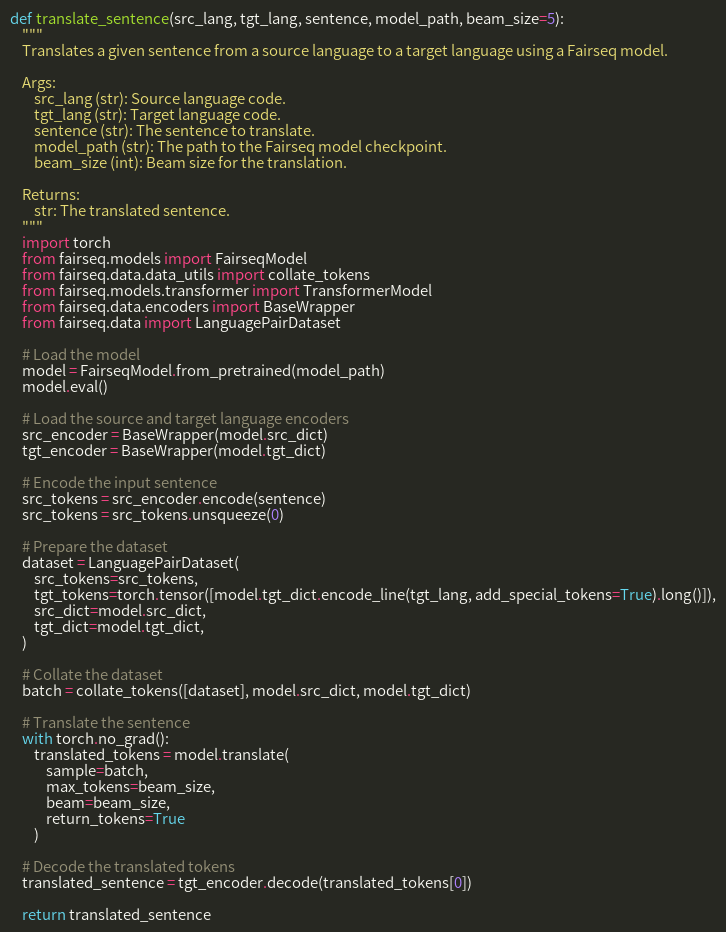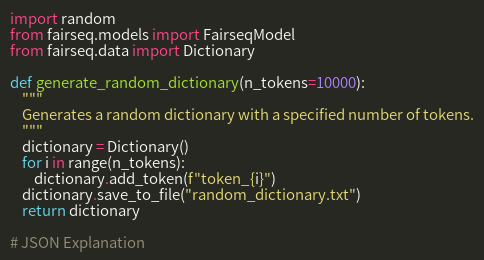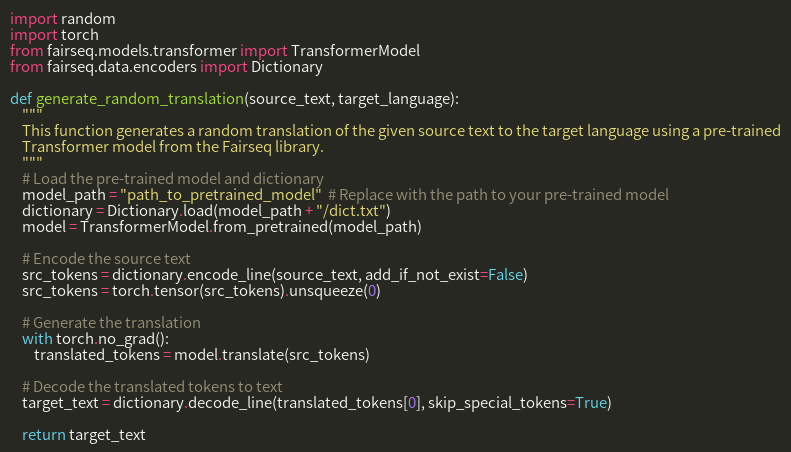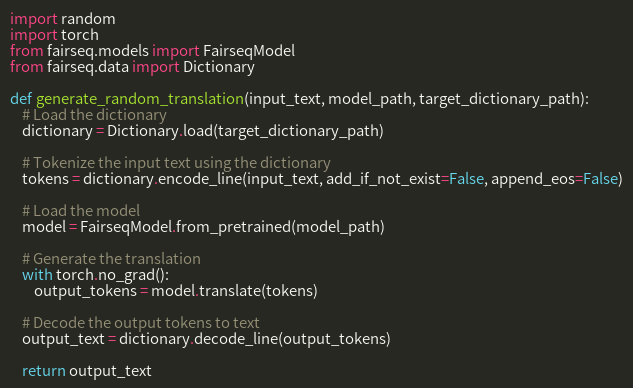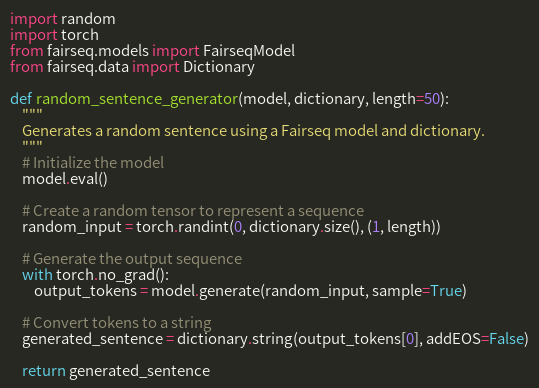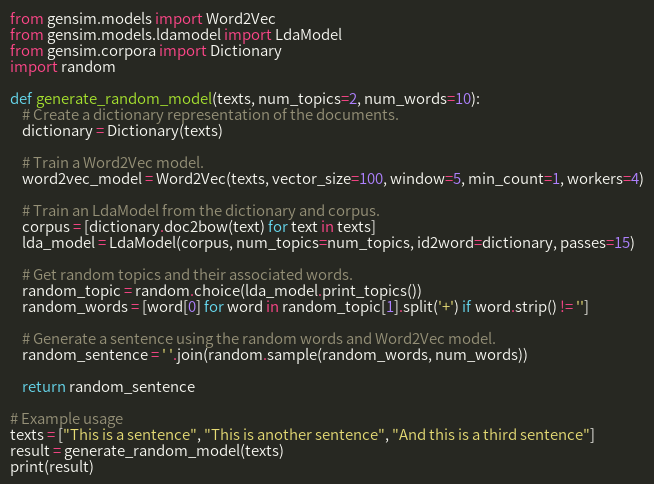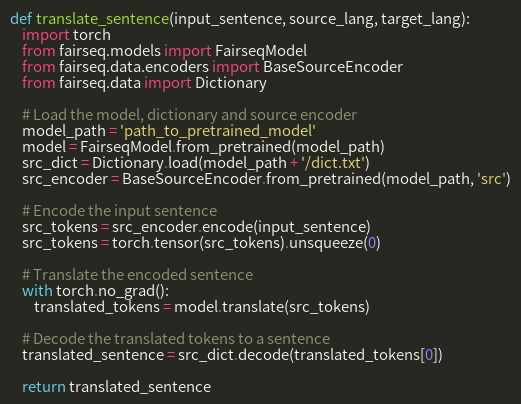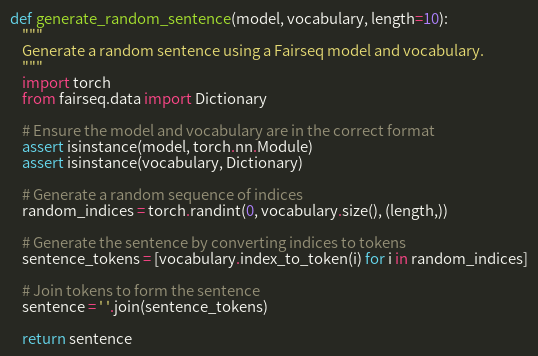Code introduction
This function uses the Fairseq library's Dictionary, SourceDataset, TargetDataset, and LanguagePairDataset classes to generate a random sentence. It first randomly generates sequences of tokens for the source and target languages, then converts these sequences into actual words. Next, it places these words into the SourceDataset and TargetDataset, and finally combines them into a LanguagePairDataset. It then randomly samples a sentence from the LanguagePairDataset as the output.
Technology Stack : Fairseq, Dictionary, SourceDataset, TargetDataset, LanguagePairDataset
Code Type : The type of code
Code Difficulty : Intermediate
import random
import torch
from fairseq.data import Dictionary, LanguagePairDataset, SourceDataset, TargetDataset
def sample_random_sentence(dictionary, src_dict, tgt_dict):
"""
Generate a random sentence using the Fairseq dictionary and dictionaries for source and target languages.
"""
# Generate a random sequence of source tokens
random_src_tokens = [random.randint(1, len(src_dict)) for _ in range(10)]
# Generate a random sequence of target tokens
random_tgt_tokens = [random.randint(1, len(tgt_dict)) for _ in range(10)]
# Create source and target datasets
src_dataset = SourceDataset(dictionary, random_src_tokens)
tgt_dataset = TargetDataset(dictionary, random_tgt_tokens)
# Combine the source and target datasets into a language pair dataset
paired_dataset = LanguagePairDataset(src_dataset, tgt_dataset, src_dict, tgt_dict)
# Sample a random sentence from the dataset
for src, tgt in paired_dataset:
# Convert tokens to strings
src_str = ' '.join(dictionary.index_to_word(src))
tgt_str = ' '.join(dictionary.index_to_word(tgt))
break # Break after the first sample for demonstration purposes
return src_str, tgt_str
# Example usage
dictionary = Dictionary()
src_dict = Dictionary()
tgt_dict = Dictionary()
# For demonstration purposes, we need to create some dummy dictionaries and datasets
dictionary.add_word('the')
dictionary.add_word('cat')
dictionary.add_word('sat')
dictionary.add_word('on')
dictionary.add_word('the')
dictionary.add_word('mat')
src_dict.add_word('the')
src_dict.add_word('cat')
src_dict.add_word('sat')
src_dict.add_word('on')
tgt_dict.add_word('the')
tgt_dict.add_word('mat')
tgt_dict.add_word('the')
tgt_dict.add_word('cat')
tgt_dict.add_word('sat')
tgt_dict.add_word('on')
src, tgt = sample_random_sentence(dictionary, src_dict, tgt_dict)
print(f"Source: {src}")
print(f"Target: {tgt}")

